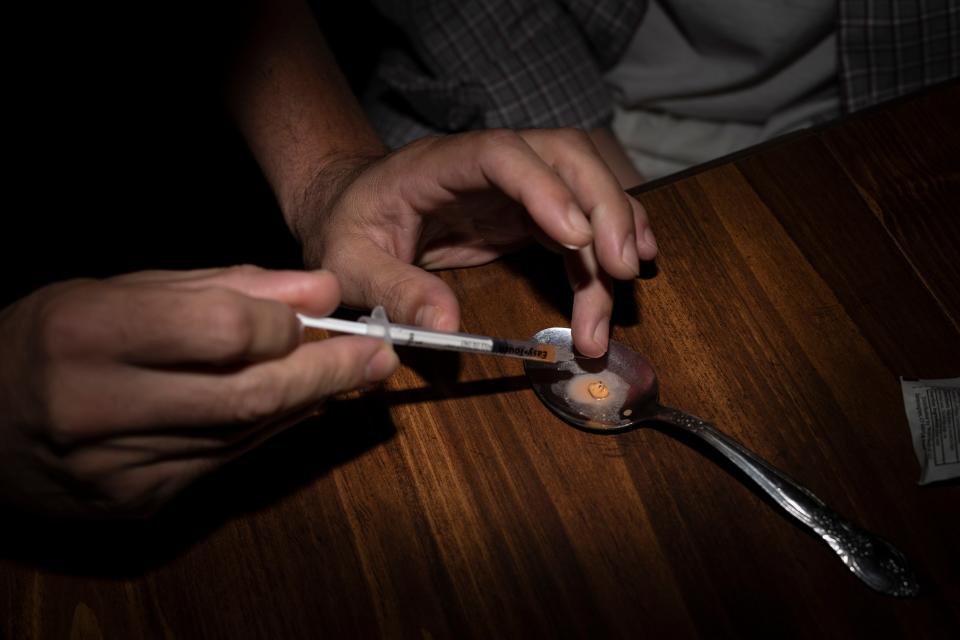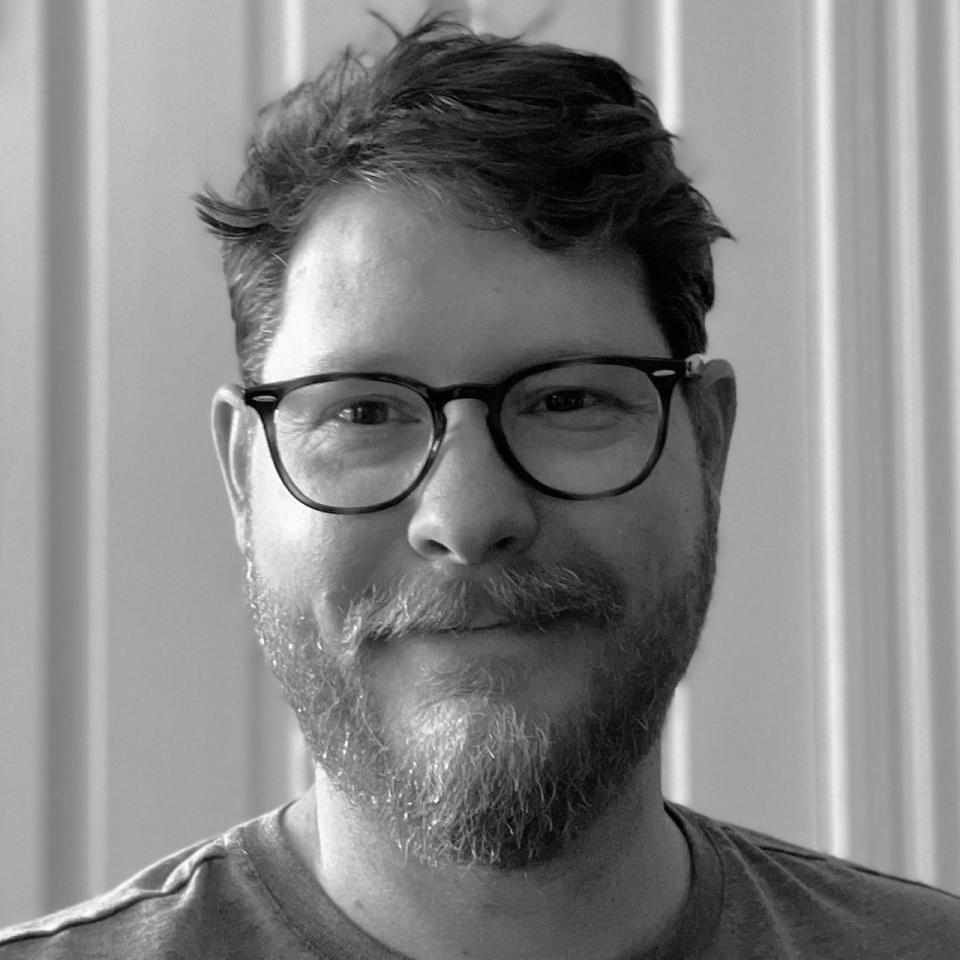Traditional opioid treatments are inadequate, but ibogaine research is an overpriced boondoggle
Kentucky has found itself at the center of an unlikely controversy. As opioid settlements are doled out by pharmaceutical companies who promoted addictive substances with shamefully unethical tactics, new pharmaceutical companies are popping out of the woodwork in the hopes of getting that money to test out their own experimental drugs on a poor and unsuspecting population. Out of the kindness of their hearts, various questionable “experts” and other monied advocates from around the country have been parachuting in to help out with this effort.
The latest is someone named Khaliya. A self-described “mental health futurist” with no last name and no connection whatsoever to the state of Kentucky, this “changemaker” and “peace prize winner” believes that ibogaine might remedy “America’s sprawling mental health crisis.” Needless to say, alarm bells should be going off.
Ibogaine is an exotic and little studied psychoactive drug
Dr. Rick Strassman is America’s foremost psychedelic expert, having initiated the psychedelic renaissance with his investigations into DMT and psilocybin in the early 1990s. He also served on an FDA panel in 1994 that decided to halt human studies with ibogaine in Miami. With proper cardiac assessment and monitoring, Strassman says, it is possible to do trials with ibogaine, although toxicity remains a concern. “Further,” he told me, “no head-to-head comparisons exist for substance abuse treatment between ibogaine and classical compounds. It may not provide a distinct advantage over classical drugs.” David Nichols, a pharmacologist and psychedelic chemist from Kentucky who has produced psilocybin and MDMA for clinical trials at Johns Hopkins and other institutions, echoed those sentiments in an email: “Ibogaine has the cardiac problem you noted. Plus, its action is very long. I have no idea why they are pushing ibogaine instead of psilocybin.”
Read the opposing view: Kentucky could lead the nation in addiction treatment innovation with ibogaine. It should seize it.
Kentucky's ibogaine plan is unrealistic
Many professionals in the state are skeptical of this promise to usher in some vaguely defined “mental health care of the future.” Don Rogers, a psychologist and Former Chief Clinical Officer of New Vista, thinks the ibogaine plan is unrealistic. “It seems like a conservative fantasy to find a way to have an abstinence-based solution to the epidemic rather than harm reduction and medication assisted treatment,” Rogers told me. “It would obviously be great to have a one trial treatment that leads to high effectiveness and is abstinence based, but that is probably a fantasy.”
So why have they chosen to test out this potentially lethal drug on the poor and mostly uneducated populations of West Louisville and Eastern Kentucky? Why not try psilocybin which has a much better track record in terms of safety? The answer is, of course: special interests. After flooding the state with campaign donations and propaganda designed to transfer millions in settlement payouts directly into their own already-overflowing coffers, the venture capital and pharmaceutical interests pushing ibogaine are now in a desperate last ditch effort to save the program after Bryan Hubbard’s sudden dismissal.
I like Hubbard. I believe he has a uniquely sophisticated understanding of Kentucky’s complex problems and is driven by sincere concern and empathy for those afflicted by addiction. But as a newcomer to psychedelics, he may be naïve when it comes to these special interests and their motivations. The history of psychedelic research is that of enormous enthusiasm and poor research design. Add in the hype and unethical practices of drug companies and extreme skepticism is warranted. Companies like Compass Pathways and others involved in this effort have proven to be guided by risky utopian thinking. Rick Doblin—who flew into Louisville recently to speak at a conference promoting ibogaine—has a well-documented history of making absurd claims such as creating a world of “Net Zero Trauma” by 2070. These ridiculous shenanigans resemble the prosperity gospel and the medicine shows of the nineteenth century.
Ibogaine helped me beat heroin addiction but I oppose Kentucky funding psychedelic research

Psychedelics are fascinating substances but we know very little about them
Psychedelics are fascinating substances but we know very little about them, how they work, and even less about the human brain. In a recent paper published by "Neuron," Raymond Dolan admits what critics of psychiatry have been arguing for years: there is no scientific evidence for any of the conditions that psychedelics supposedly treat. “Despite three decades of intense neuroimaging research, we still lack a neurobiological account for any psychiatric condition.”
If that isn’t enough, the National Institutes of Mental Health announced it will no longer use the Diagnostic and Statistical Manual of Mental Disorders—used widely by researchers, health insurers, policymakers, regulatory bodies, the legal system and drug manufacturers—in its research. Why? The concepts that the DSM introduced into everyday language “lack scientific validity.” While services for mental health and prescriptions for psychiatric drugs skyrocketed, rates of suicide, depression and anxiety rose to unprecedented levels. Not only do we not understand how psychedelics work, we have a very poor understanding of the underlying conditions they are intended to address.
Paying neuroscientists to experiment on Kentuckians under the guise of a humanitarian effort is an outrageous notion. The urge to save humanity, H.L. Mencken once said, is almost always only a false face for the urge to rule it. Are traditional treatment programs adequate? No. Without healthy support networks to integrate back into after treatment, people very often fall back into old behavior patterns. Psychedelics will not change this. Common sense tells us that without adequate time to appreciate life, without the resources to cook healthy meals, to exercise, to actually live, the conditions for real health are destroyed. At the root of all of our crises is greed and government corruption, not “deep mental health problems,” as psychedelic advocates often claim.
Drugs that make the brain “more plastic” cannot replace a nurturing habitat, something absent for far too many Americans. The viability of any separate category of psychedelic wellness is nullified by an economic order now dependent on industries whose profits derive from addicting consumers, modifying behavior toward addiction. Algorithms, advertising (fast food and other poison), and social media are all acute forms of psychological manipulation. At what point does this wizardry or tug of war result in derangement?
Plastic heated up and twisted long enough eventually stretches until it snaps. Who benefits from this eternal back and forth? The same old captains, robber barons and consumer-mongers. Who loses? The American public, who seem to have an unquenchable thirst for hair-brained schemes and quick fixes. To believe psychedelics will somehow fundamentally transform this is just another twist on the American dream.

A former clinical trial participant at Johns Hopkins, Travis Kitchens has written extensively about the history and methodology of psychedelic drugs. He lives in Clifton.
This article originally appeared on Louisville Courier Journal: Ibogaine is risky. Kentucky needs opioid crisis solutions that work

